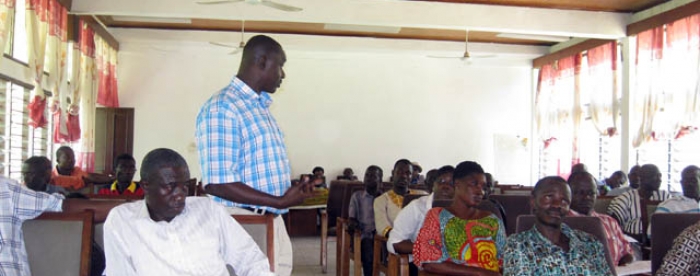News
Our stories ... ...

Ghana - 15 October, 2012
Stakeholders have adopted and validated artisanal milling concept and related models for implementing a project that seeks to link local communities with forest concession holders to produce legal lumber for the domestic market.
The EU Chainsaw Project implemented by TBI Ghana and partners has made advances toward the definition of the artisanal milling concept through multi-stakeholder dialogue. A final definition of the concept is expected to help inform the alignment of the domestic lumber market to legal regimes, rationalise access to legal lumber and help promote sustainability. To pilot this concept, the Food and Agriculture Organization of the United Nations (“FAO”) under the “ACP-FLEGT Support Programme” supported TBI Ghana to implement the project that aims to link local communities with forest concession holders to produce legal lumber for the domestic market.
A critical thrust of the FAO-supported project is that of strengthening multi-stakeholder dialogue and consensus building at all levels of implementation. Under the project, TBI Ghana is required to facilitate the development of partnership between local communities and forest concession holders, support the definition of artisanal milling and develop models for operationalising it through focus group discussions. Hence, on September 25, 2012 TBI Ghana presented the proposed models to stakeholders who thoroughly discussed, offered constructive feedback and eventually validated the concept during the workshop held at the Wood Industries Training Centre in Akyawkrom near Kumasi. The validation workshop was attended by forty-six (46) participants drawn mostly from pilot communities. Representatives of the FAO were also on hand to support the process.
The project which spans from January to December 2012 is also expected to support the development of a monitoring system for tracking lumber meant for the domestic market. It is being carried out in the Eastern and Brong-Ahafo regions of Ghana where illegal lumber milling is prevalent and the potential for collaboration exists.
The successful implementation of the project would lead to a complete and coherent strategy to promote law compliance related to illegal logging and strengthen structures and systems for stakeholder involvement.